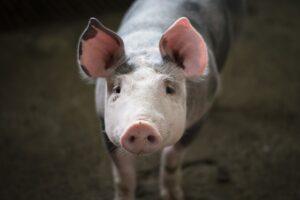Serbia, Bosnia and Croatia are also severely affected by the African swine fever epidemic
More than 34,000 pigs had to be killed in Serbia, Croatia and Bosnia-Herzegovina due to the African swine fever epidemic present in the region, and the competent ministries of the countries are working to contain the epidemic.

(Photo: Pixabay)
The Ministry of Agriculture of Serbia announced on Friday that they are constantly checking the herd of domestic pigs and wild boars and doing everything possible to stop the spread of the infection. The ministry also drew attention to the fact that the virus that causes the disease spreads among wild boars and pigs and is not dangerous for humans.
Since the outbreak of the epidemic in June, 18,000 pigs and wild boars have been destroyed in Serbia, 13,000 in Bosnia-Herzegovina, and 3,000 in Croatia in order to prevent the spread of the disease.
According to the report of the Serbian news portal Nova.rs, the breeders fear that the authorities will also want to destroy the healthy pig population in the affected farms in order to curb the epidemic, and they hope that they can receive compensation from the state for the destroyed animals. So far, only the Croatian government has announced that it will compensate farmers in the amount of 7.5 million euros (2.88 billion forints).
MTI
Related news
NAK President: more than 120 thousand people signed the agricultural petition in one month
🎧 Hallgasd a cikket: Lejátszás Szünet Folytatás Leállítás Nyelv: Auto…
Read more >Related news
MOHU: 5,200 return points are in operation, but 47 larger settlements still do not have RE points – public “enema” machines may be introduced
🎧 Hallgasd a cikket: Lejátszás Szünet Folytatás Leállítás Nyelv: Auto…
Read more >GDP growth in OECD member countries slowed to 0.3 percent in the last quarter of last year
🎧 Hallgasd a cikket: Lejátszás Szünet Folytatás Leállítás Nyelv: Auto…
Read more >









